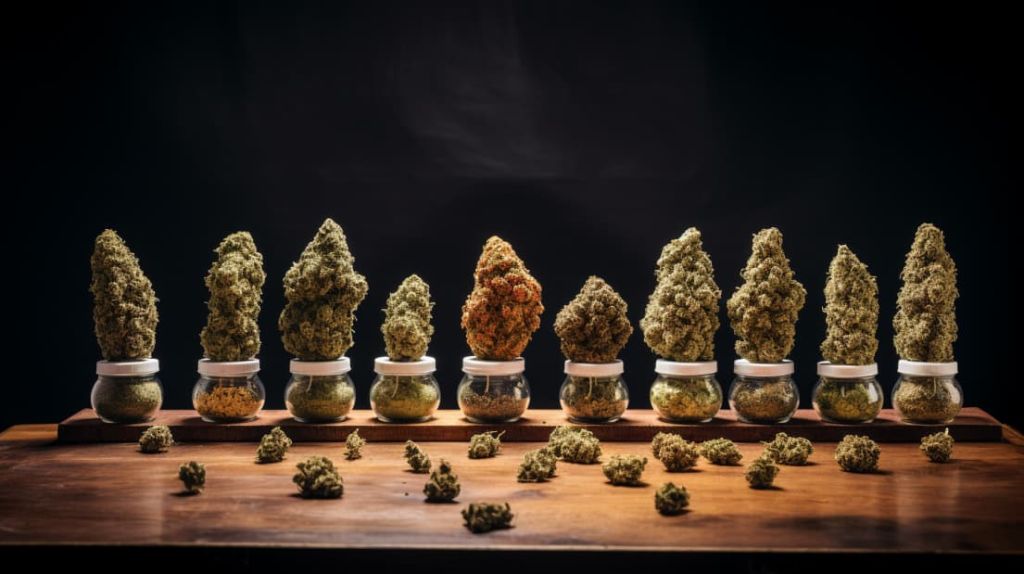In the realm of healing and wellness, Boulder, Colorado has emerged as a hub for those seeking the benefits of medical cannabis. The city hosts a thriving medical cannabis program, offering access to cannabis-based medical therapies for various conditions. As the medical marijuana industry continues to grow, it is crucial to explore the benefits of cannabis while being mindful of potential adverse health effects.
In this blog post, we’re delving into the world of medical cannabis in Boulder, celebrating the healing power of cannabis and its place in medical therapies. Whether you’re a proponent of the medical cannabis program or new to exploring cannabis benefits, we’ll delve into treatment options. Join us as we navigate the path to healing with Boulder’s best in the world of medical cannabis.
Different Strains and Their Medicinal Benefits
To begin with, a diverse array of strains is available at Boulder dispensaries, each offering unique medicinal benefits. Extensive research highlights CBD’s prominent role in addressing various medical conditions, emphasizing medicinal cannabis efficacy. CBD, a non-psychoactive compound found in cannabis, has garnered attention for its potential therapeutic properties. Numerous studies have demonstrated CBD products’ effectiveness in alleviating symptoms associated with chronic pain, anxiety, epilepsy, and even certain cancer-related conditions.
This compound also interacts with the body’s endocannabinoid system, responsible for regulating various physiological processes. Through its interaction with specific receptors in this system, CBD can promote an overall sense of balance and well-being. It’s worth noting that different strains may contain varying levels of CBD, underscoring the importance of consulting with the knowledgeable staff at Boulder dispensaries to identify the ideal strain for your particular needs.
Topical Medical Cannabis Products for Pain Relief
Firstly, one popular option for pain relief is using topical cannabis products, like creams or ointments, containing THC and CBD. These products are effective in treating skin conditions and chronic pain. Studies show they offer relief for conditions like eczema, psoriasis, and dermatitis. THC and CBD in these products interact with the skin’s endocannabinoid system, reducing inflammation and providing pain relief. Topical cannabis is also promising for managing chronic pain, including arthritis and neuropathy, offering targeted relief without psychoactive effects. In sum, topical cannabis products are a promising approach for cannabis therapy in addressing skin conditions and managing chronic pain.
It’s important to note that while medical cannabis shows potential benefits, it’s not without potential side effects and risks. Patients should be aware of the possibility of adverse events and the risk of developing cannabis use disorder. In some cases, cannabis can lead to side effects like dizziness, dry mouth, or changes in appetite. Discuss your treatment with a healthcare provider for the safest and most effective use of medical cannabis.
It’s also advisable to register in your state’s medical marijuana program, which provides patients with legal access to cannabis-based medicine and cannabis-derived products. This program ensures patients receive high-quality products with precise dosages and controlled quality standards, promoting safety and well-being. Always consult with healthcare professionals and stay informed about the latest research to make the most informed decisions regarding your medical cannabis treatment.

Tinctures and Oils: Alternative Methods of Consumption
Try using tinctures and oils as an alternative method of consuming medicinal cannabis. These options offer convenience and discreteness, making them popular choices among cannabis users. Here are four alternative methods to explore:
- Vaping and inhalation: By heating the cannabis oil or extract, you can inhale the vapor for quick and effective results. This method allows for precise dosing and immediate relief.
- Sublingual tinctures: These liquid extracts are placed under the tongue, where they are absorbed directly into the bloodstream. This method offers fast-acting effects and is ideal for those who prefer not to inhale or swallow cannabis.
- Topical oils: Applied directly to the skin, these oils provide localized relief for pain, inflammation, and skin conditions. They do not produce psychoactive effects, making them suitable for daytime use.
- Suppositories and transdermal patches: These unconventional methods offer discreet and long-lasting relief. Suppositories are inserted for systemic effects, while transdermal patches deliver cannabinoids through the skin.
With these alternative methods, you can find a consumption method that suits your preferences and needs.
Edibles and Infused Products for Medical cannabis Use
Boulder dispensaries offer a diverse range of weed edibles and infused products designed for medical use, ensuring that you can select the best option to address your specific requirements. The latest trends in medical edibles include cannabis-infused beverages like teas, sodas, and even coffee. These beverages provide a discreet and convenient means of consuming cannabis for medical purposes. CBD (cannabidiol) is a key component in many medical cannabis products and plays a crucial role in their therapeutic benefits. This non-psychoactive compound in cannabis provides pain relief, reduces anxiety, depression, and alleviates symptoms in conditions like epilepsy. When considering edibles or infused products, it’s essential to take into account the CBD content and how it can potentially benefit your specific medical condition.
While medical cannabis has shown promise for various health conditions, it’s important to acknowledge the regulatory landscape surrounding its use. In the United States, the FDA has approved cannabis-based medications, including a mouth spray for treating seizures in two rare forms of epilepsy. However, the FDA has not approved the use of the whole marijuana plant as medicine, and cannabis products are not considered dietary supplements.
The regulatory status of medical cannabis can vary by state, and it’s essential to understand the legal framework and any specific qualifying conditions in your area. It’s recommended that patients consult with healthcare professionals who are knowledgeable about medical cannabis to ensure safe and effective treatment. The field of medical marijuana is continually evolving, with ongoing research and clinical trials offering hope for further developments.

Understanding Dosage and Consumption Methods
In order to make the most of medicinal cannabis, it’s essential to have a good grasp of the appropriate dosage and the range of available consumption methods. Vaporizers and inhalation offer a quick and efficient way to consume medicinal cannabis. Vaporizers heat the cannabis to a temperature that releases the active compounds without burning the plant material, ensuring controlled and precise dosing. Inhalation provides swift relief, making it a preferred option for those seeking immediate symptom alleviation.
Comprehending the effects of different cannabinoid ratios is crucial. Various cannabis strains possess differing ratios of cannabinoids like THC and CBD, which can result in distinct therapeutic effects. Familiarizing yourself with these ratios also enables you to select the strain that aligns best with your specific medicinal needs. This knowledge empowers you to make informed decisions and optimize the benefits of medicinal cannabis.
It’s important to keep up to date with your state’s medical cannabis laws and regulations, especially regarding qualifying conditions and allowable forms of cannabis. State laws can vary widely, so it’s crucial to meet the qualifications for medical cannabis use in your area. Staying informed about the latest research and developments in the medical cannabis field is also beneficial. Organizations like the National Institute on Drug Abuse (NIDA) provide valuable insights into the potential benefits and adverse effects of cannabis use for various medical conditions.
Discussing your medical cannabis journey with a healthcare professional is valuable. They can guide you and ensure that medical cannabis complements other treatments, such as prescription drugs, for your medical condition. Staying informed and collaborating with healthcare experts allows patients to maximize this alternative treatment while ensuring well-being and legal compliance.
Final Thoughts
So if you’re in Boulder and in need of medicinal cannabis, the dispensaries have got you covered. A wide range of strains with medicinal benefits, edibles, infused products, topical cannabis for pain relief, and alternative methods like tinctures and oils provide options for everyone. Just make sure you understand the dosage and consumption methods to ensure the best experience. Happy healing!















